Editor's note: This year, United Talent Agency and Creative Artists Agency became the first major Hollywood talent agencies to achieve HRC's Equality 100 Award as leaders in LGBTQ+ workplace inclusion. Below, Jacob Fenton, a partner at UTA, details how that happened and what that means for Hollywood.
I didn’t have the courage to come out until I began my career at United Talent Agency 23 years ago.
I grew up in both a time and place that wasn’t conducive to feeling supported or safe living your life publicly as gay. It was soon after I started working at this company that I ultimately found the agency (pun intended) to be comfortable with my authentic self. I saw gay coworkers who started before me get promoted, become partners, and find personal and professional success. I realized this was a place where perhaps I could find the same for myself, and it proved true. The process and road aren’t always easy to travel, and there can be a great deal of learning along the way, not all of it comfortable. What’s that famous Socrates quote? “Let him who would move the world first move himself.” And at UTA, we were moving.
A handful of years ago, leadership began recognizing the need to create more community at work. I give a lot of credit to our CEO Jeremy Zimmer, as well as those brought in to help support and implement this continued movement. The establishment of EIGs (Employee Interest Groups) made way for many of our employee subcultures to come together. One such space was reserved for our LGBTQ+ community, and UTA Proud was formed, with me being tapped as one of its inaugural leaders, along with my friends and fellow partners Lucinda Moorhead and Keya Khayatian.
Then the pandemic hit. Staying connected became more important than we ever thought. UTA Proud became an outlet for mentorship, social events (albeit largely virtual to start), community service projects, resource sharing, galvanizing around political issues affecting the LGBTQ+ community, and more. It also served as a fertile space (perhaps unintentionally at first) for ideas to germinate — both for the company’s ongoing culture evolution and for new business opportunities. Drag’s undeniable influence in culture had organically merged with our commitment to support LGBTQ+ talent and positioned us to sign some of today’s most influential drag artists, like Monét X Change, Violet Chachki, Bob the Drag Queen, Trixie Mattel, Katya Zamolodchikova, and Gottmik. UTA now had this entirely new segment of clients and it was rightfully celebrated across the company.
Thanks to our chief of social impact and UTA Foundation head Rene Jones and her group, the company continued to add the many LGBTQ+ causes into our charitable work. As part of our yearly UTA-wide Project Impact, a day of giving back, more LGBTQ+ organizations became partners. What had initially felt like a strenuous boulder to trudge up a hill to better a small few, soon became an endeavor the entire company rallied around.
UTA had always been an agency that prided itself on being industry thought leaders who help shape culture by virtue of the talent and voices whom we partnered with. Our culture internally was now manifesting externally, and the correlation was beautiful to see. Agents were encouraged to go out and sign artists who not too long ago might have been viewed as too risky or as unproven outliers; too “specific” or niche perhaps. But not anymore. UTA created a home for them. Employee benefits kept pace with it too; updated policies have spanned from spousal and domestic partner benefits (including adoption assistance), transgender-inclusive health care, access to gender-neutral restrooms, and additional training and resources for managers.
We went from a company that didn’t have a social media account, to one that recognizes and celebrates Pride Month across each of our channels. We were once a company where I could easily count the number of LGBTQ+ colleagues and clients we had. Now I can’t count anymore due to the embraced, supported, and encouraged growth of both (although our UTA Proud Slack channel is approaching 200 members).
UTA has fostered an environment where, for example, agents in our endorsements division are encouraged to think in ways that have seen Michaela Jaé Rodriguez become the first transgender spokesperson for Charlotte Tilbury, or Elliot Page become the face of a Gucci fragrance.
This is the first year in which UTA, or any major talent agency, has achieved a 100-point score on the Human Rights Campaign Foundation’s Corporate Equality Index. It is not only a huge honor — it’s incredibly important. This recognition is a vital indicator of the continued DEI efforts at UTA and across our industry. Among the many hats we wear, agents are tasked with persuading the minds of Hollywood’s gatekeepers. An increase and emphasis on LGBTQ+ issues at the talent agencies, one can hope, leads to more LGBTQ+ representation both on our screens and the world beyond.
It’s a hopeful reminder that when you work to foster inclusion inside your walls, the impact can reach far beyond those walls too. And then the world can really move.
Jacob Fenton is a partner and talent agent at UTA and serves on the Board of Governors for the Television Academy. Fenton represents some of the world's most celebrated LGBTQ+ actors, including Elliot Page, Michaela Jaé (MJ) Rodriguez, Billy Eichner, and allies Christine Baranski, Jennifer Coolidge, and Uzo Aduba, among many others.
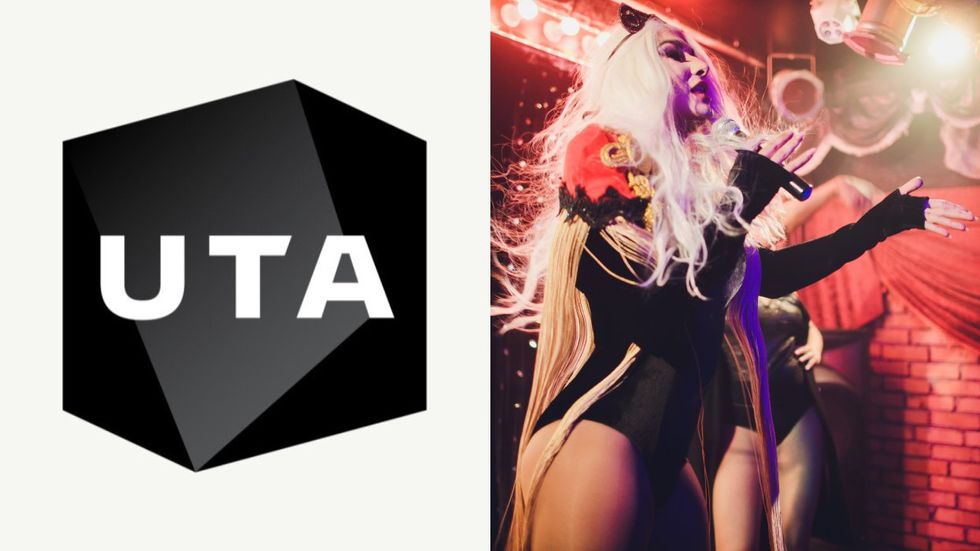






















































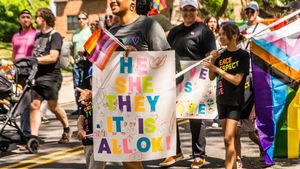
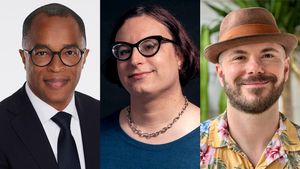





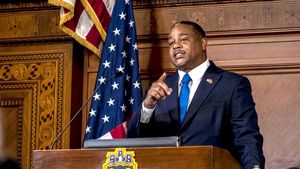






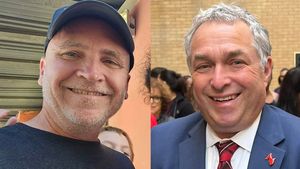


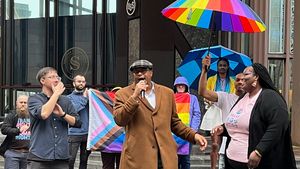











Cooper Koch and twin bro spark controversy with eye-popping 'White Lotus' parody